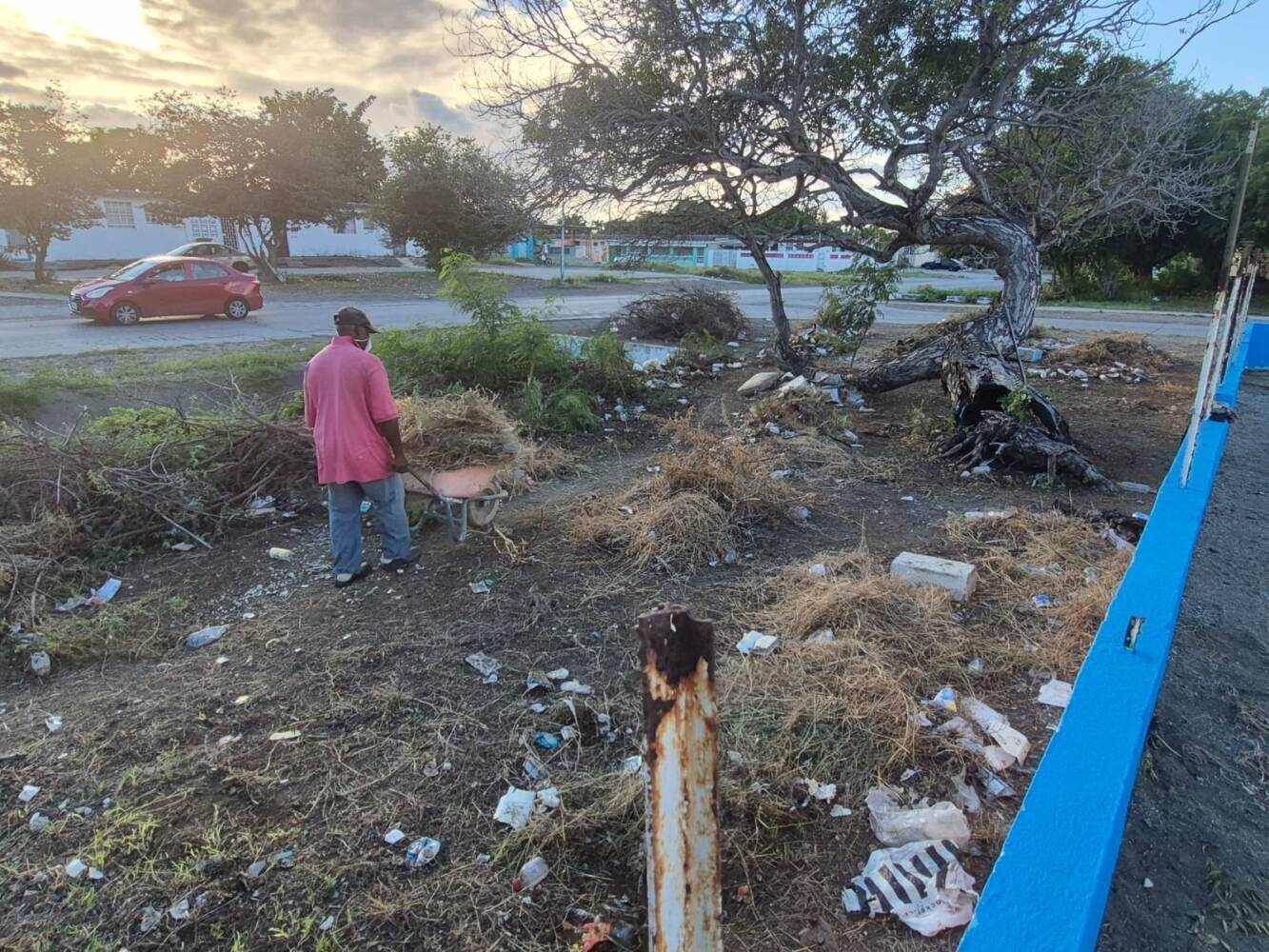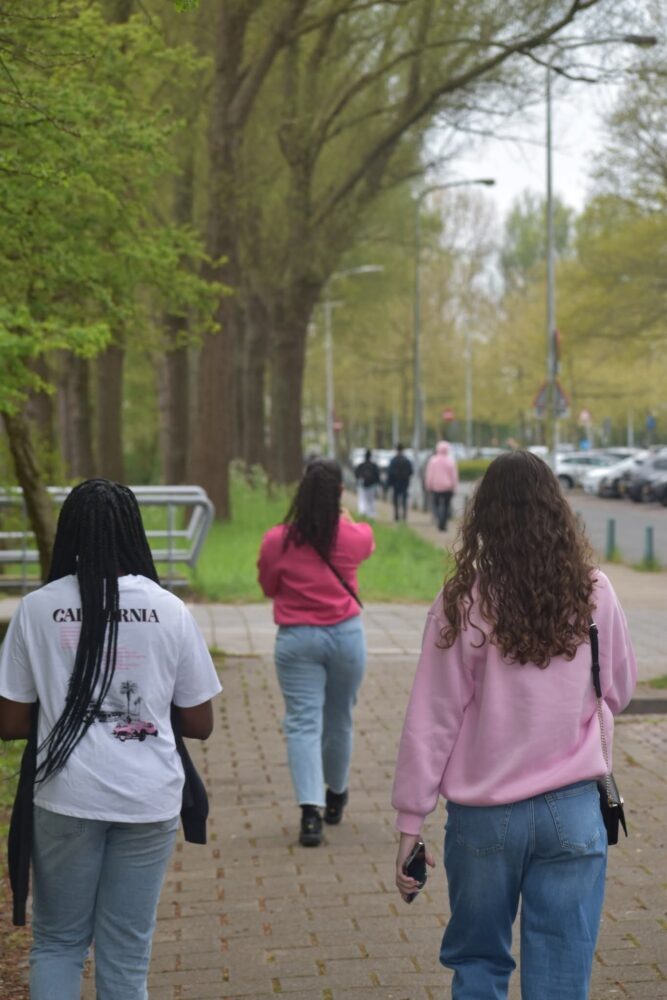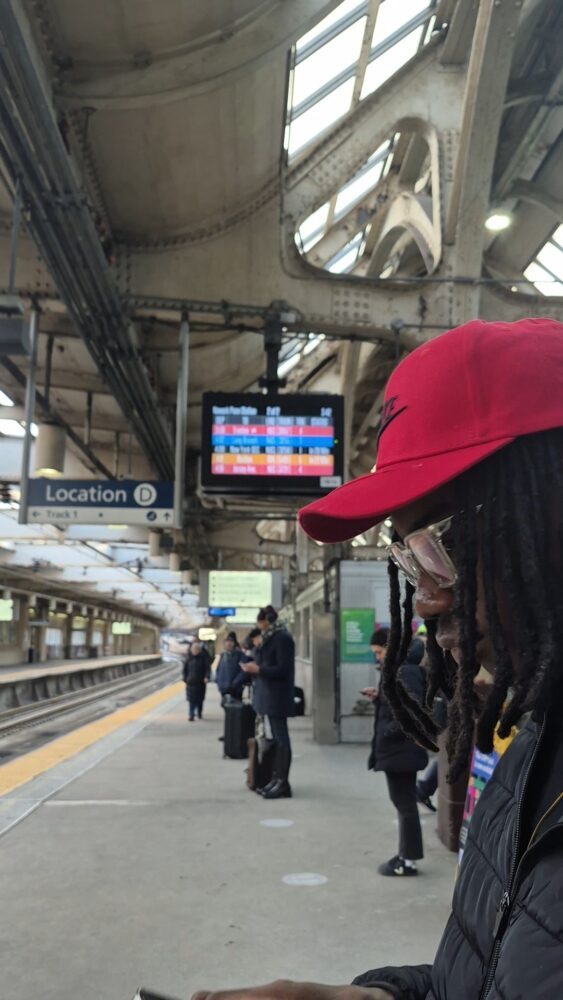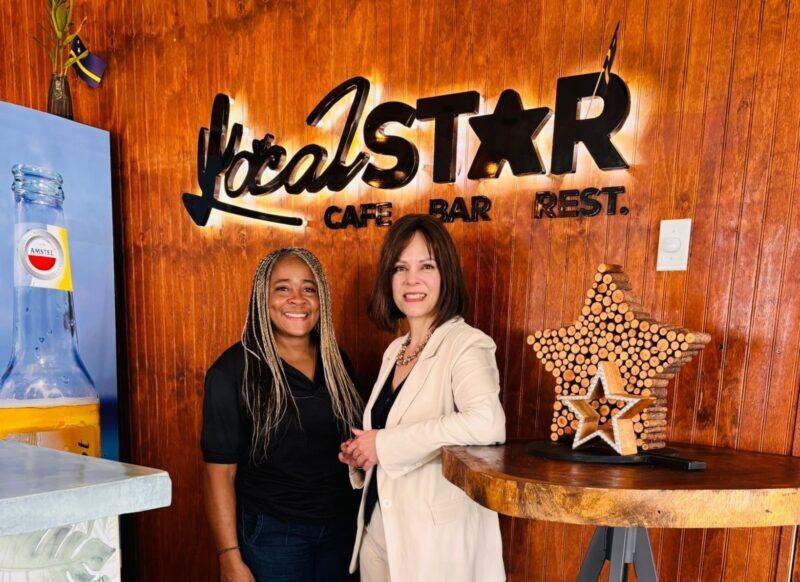Under the title “Poor neighborhoods struggle years on end”, Caribbean Network is shedding light on developments in Curaçao’s disadvantaged neighborhoods. The goal is to show how these communities have changed over time. We begin with the Seru di Papaya neighborhood (commonly known as Ser’i Papaya).
Year after year, poor neighborhoods receive little to no attention, causing their situation to worsen. An unfinished poverty reduction program, the failure to continue projects meant to bring relief, and broken promises of aid – all of these factors are pushing one neighborhood after another deeper into poverty. Shani Bitorina is a social worker and a resident of Ser’i Papaya. She manages activities and projects in the community.
Ser’i Papaya is considered one of the poorest neighborhoods in Curaçao, partly because many residents live below the so-called ‘poverty line’. Almost everyone in the neighborhood relies on an old-age pension, welfare benefits, or earns minimum wage. Their income is simply not enough to survive.
According to Bitorina, entire families are thrown off balance by this situation. Children drop out of school and start working to help meet basic needs at home. Bitorina explains: “It’s not about luxury items. It’s about essentials like food, clothing, internet, water, electricity, and school transportation.” As a result, some young people end up in prostitution, drug trafficking, or gangs after leaving school.
‘Peaceful’
Driving up the hill into Ser’i Papaya, you enter a public housing area that, at first glance, seems peaceful. There’s no overwhelming sense of danger. The neighborhood was labeled ‘dangerous’, reportedly because violent crimes used to happen regularly in the nearby Seru Fortuna area.
Near the entrance of the neighborhood, you’ll find the Community Center (Buurtcentrum). While the building is in decent condition, it lacks proper financial support and materials from the organizations responsible for those aspects. A major eyesore in the neighborhood is the abandoned Dòdò Palm School, which closed several years ago due to low student enrollment. Since then, it has turned into an illegal landfill. The condition of homes varies. Some residents have renovated and modernized their houses, but most homes clearly suffer from serious neglect.
Mental state
One often overlooked aspect of poverty is the mental state of families. As a professional, Bitorina recognizes that in several poor neighborhoods, entire families fall into the category of ‘Mild Intellectual Disability’, meaning they live with cognitive challenges. Alarmingly, many of these individuals do not receive the support and guidance they need.
Besides working in Ser’i Papaya, Bitorina also operates at a national level. Many neighborhoods face the exact same struggles. It’s clear to her that poverty and mental health issues are a nationwide problem in Curaçao. This requires urgent attention – not just from social workers, but also from national family support programs.
Politics
Many political parties claim to care deeply about local communities. But Bitorina believes that if politicians truly recognize this as a national crisis, they need to include neighborhood welfare as a key point in their government plans. For Ser’i Papaya, she has developed the ‘Seru di Papaya Neighborhood Improvement Plan’.
Centers and funding
Well-functioning community centers could help fight poverty in these neighborhoods. However, there is a huge gap between centers in terms of funding and resources. Bitorina explains: “In Ser’i Papaya, we haven’t had a social worker, janitor, or cleaner for nine years. We’ve kept the center running purely through our own creativity and efforts.”
The government has an agreement that all community centers should have: a cleaner and an administrative worker (part-time), a janitor and an activity coordinator (full-time). The Fundashon pa Stimulá Edukashon i Formashon den Bario (Sefba), formerly known as Fesebaku, receives funding for these positions and is responsible for paying the corresponding salaries.
In addition, every community center is supposed to receive 500 guilders per month for water and electricity. However, this amount is often not enough to keep a center running smoothly. The government pays Aqualectra (the utility company) directly, but if the bill is higher than 500 guilders, the center has to cover the rest – easily leading to growing debt.
“It’s not just Ser’i Papaya. Many other community centers are struggling with the same problems. The lack of materials and resources makes it even harder for them to function,” Bitorina notes. Still, she holds onto hope. She dreams of one day seeing Ser’i Papaya transformed from a struggling neighborhood into a model community – perhaps even a tourist attraction. She hopes that the Drecha Bario (Improve the Neighborhood) project will finally be implemented to make this vision a reality.








